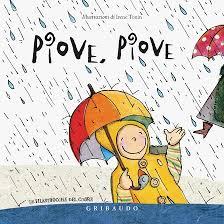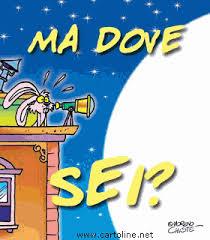
我当老师了。Faccio l'insegnante. (Sono diventata insegnante).

下雨了。 Piove.

十二点多了。Sono passate le dodici.
Può essere usato indipendentemente dal tempo espresso con la coniugazione dei verbi nella lingua italiana. La particella modale "了" si trova sempre alla fine della frase.
La particella modale "了" , oltre ad indicare che si è verificata una nuova situazione, serve per sottolineare che si era verificato un cambiamento, qualcosa di imprevvisto.

你怎么了? Cosa c'è? (Cosa ti è successo?)

昨天你去哪儿了? Dove sei finito ieri?

她不来了。 Lei non verrà.
Anche qui non si deve confondere l'uso della particella modale "了" con il tempo della coniugazione verbale italiana.
La forma negativa usa "没 " o "没有 " e non contiene più "了" alla fine della frase.
没下雨。 Non sta piovendo.
Ricordiamoci che, parlando in generale, la negazione avviene con "不".
冬天这儿不下雨。 Qui d'inverno non piove.
La forma interrogativa aggiunge"没有" subito dopo la particella modale "了", a sua volta preceduta da virgola.
你吃饭了,没有? Hai mangiato?
Notare che la domanda "Hai mangiato?" serve per avviare una discussione, a mo' di "Ciao, come stai?" per quanto buffa possa sembrare.
Un altra situazione in cui utilizziamo la particella modale " 了" sono le frasi imperative negative.

别哭了Non piangere più!

别提了!Non parlarmene!

别吃了!Non mangiare più!
La particella modale " 了" , inoltre, serve anche per indicare che un'azione avrà luogo nel prossimo. In tali frasi verrà inserito il verbo ausiliare "要" o l'espressione "就要" o " 快要" , prima del verbo.

飞机就要起飞了。 L'aereo sta per partire.
Infine abbiamo visto l'uso della particella modale "了" in svariate espressioni, ad es:
对了 (a proposito), 好了 (basta così), 算了(smettila!), 好吃极了(squisitissimo), 太 漂亮了(troppo bella) etc.
***********************************************
The modal particle "了" serves mainly to report that a new situation has been created.
我 当 老师 了 . I'm a teacher. (I became teacher).
下雨 了. It's raining.十二点 多 了 . It's over twelve.
It can be used regardless of time expressed, in the Italian language, with the conjugation of verbs. The modal particle "了" is always at the end of the sentence.
The modal particle "了", besides indicating that there was a new situation, serves to emphasize that there had been a change, something unexpected.
你 怎么 了? What happened to you?
昨天 你 去 哪儿 了? Where have you been yesterday?她 不 来 了. She will not come.
Here too, we should not confuse the use of the modal particle "了" with the time of verbal conjugation.
The negative use "没" or "没有" and no longer "了" at the end of the sentence.
没 下雨. It's not raining.Let us remember that, generally speaking, the negation is done with "不".
冬天 这儿 不 下雨. Here ,during the winter doesn't rain.
The interrogative form adds "没有" immediately after the modal particle "了", in turn preceded by a comma.
Note that the question "Have you eaten?" Is often used to start a discussion, just as '"Hello, how are you?" though it may seem funny.
Another situation in which we use the modal particle "了" are the negative imperative sentences.
别哭 了 Weep no more!
别提 了! Don't tell me about it!别 吃 了! Don't eat more!
The modal particle "了" also serves to indicate that an action will take place in the near future. In such sentences the auxiliary verb "要" or the expression "就要" or "快要" will be added before the verb.
Finally we saw the use of the modal particle "了" in a variety of expressions, eg:
